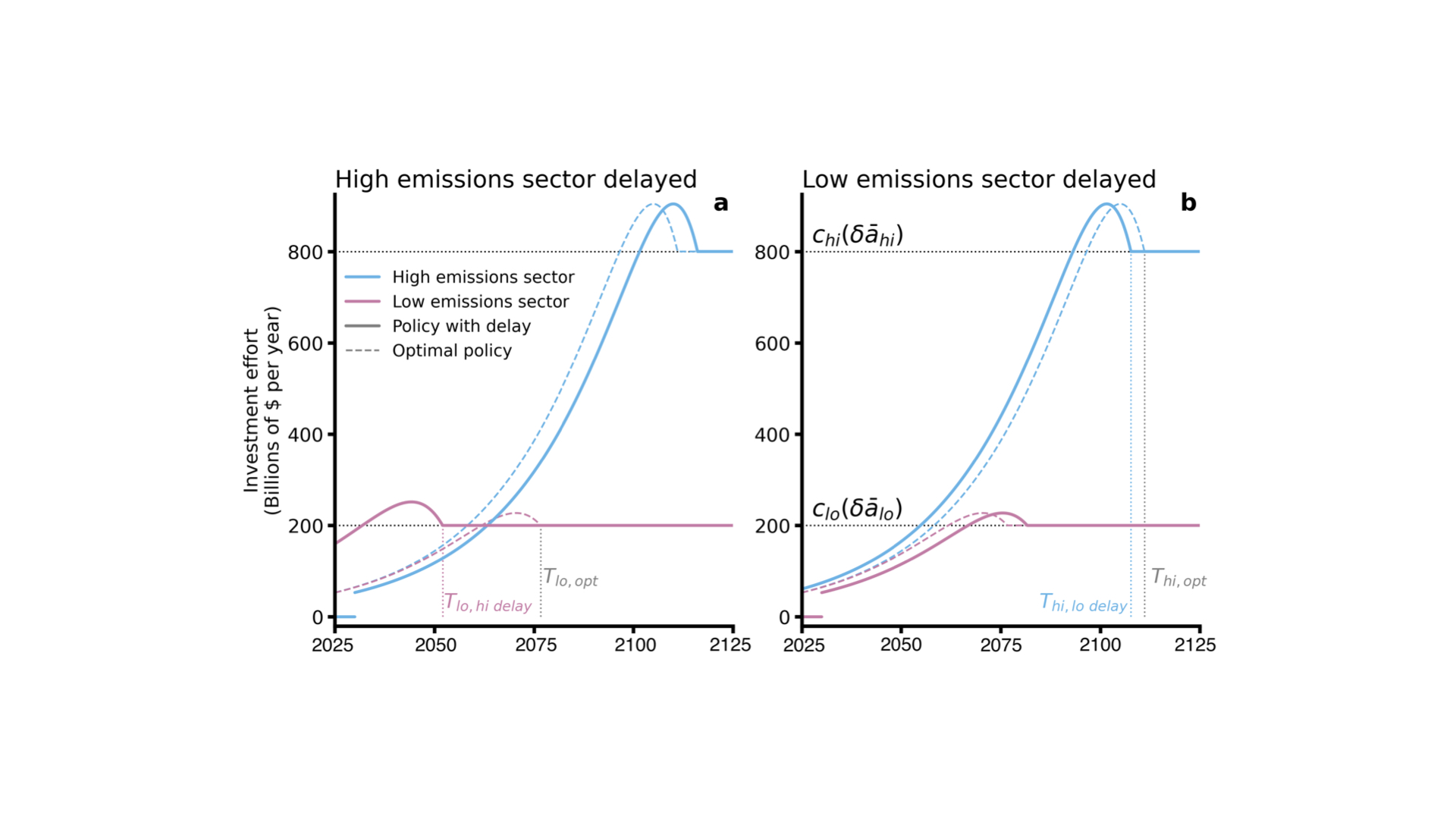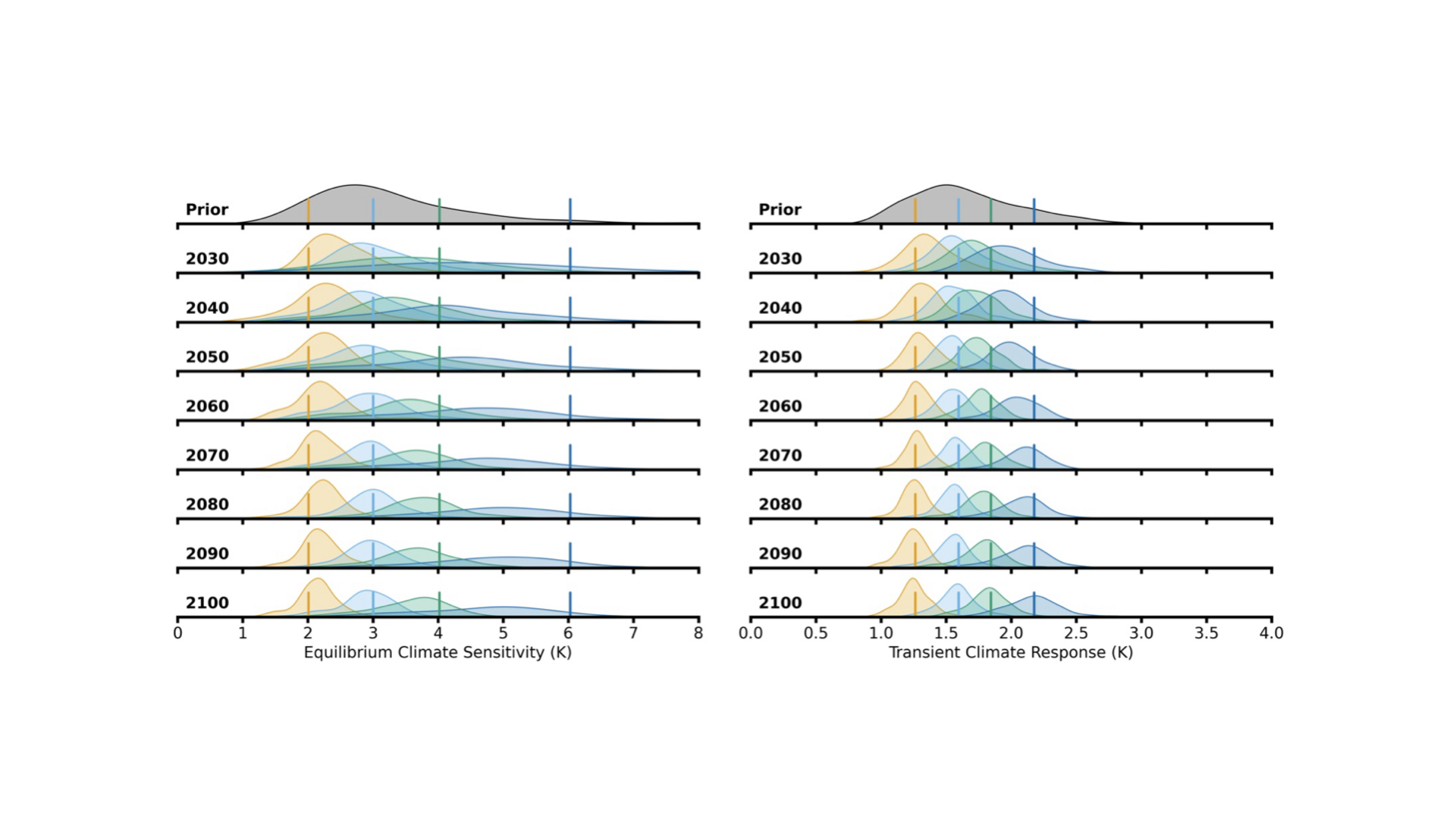Optimal Allocation of Abatement Effort under Political Constraints
Environmental and Resource Economics

Project goal
Policymakers often cite political economy constraints – usually confined to a few economic sectors – as a reason to delay necessary efforts to decarbonize their economies. This raises the question: what are the economic costs of delayed action in decarbonizing? We evaluate the economic costs of delaying efforts to decarbonize across four policy scenarios:
- No delay (the optimal policy)
- Delaying decarbonization in a set of politically challenged sectors
- Delaying any action in a set of politically challenged sectors
- Delaying all action in every economic sector From this analysis, we hope to inform policymakers as to the costs and benefits of delay in decarbonizing, particularly when political economy constraints are present that make decarbonizing certain sectors difficult.
I am very pleased to have been hired as a short-term consultant at the World Bank Climate Change Group while this work is being completed!
Abstract
Despite commitments to address climate change, governments face political challenges to implementing first-best policies. These challenges cause policymakers to delay climate action, especially in politically sensitive sectors of the economy. Taking political headwinds as an exogenous constraint, this paper analyzes the cost of delaying climate policies both at a sectoral level and economy-wide. The paper demonstrates that delaying climate action is more expensive than distorting the allocation of effort across sectors. More precisely, it is more expensive to delay economy-wide climate policies than to delay action only in a subset of sensitive sectors, which is, in turn, more expensive than immediately implementing a less ambitious policy (e.g., a lower-than-optimal carbon price) in sensitive sectors. The paper then uses numerical simulations to show that sectoral emissions rates, rather than abatement costs, drive the cost of delaying climate action in a given sector. This is because delaying action in sectors with high emissions rates causes a large distortion in the allocation of effort across the rest of the economy, which increases costs. Failing to capture low cost abatement opportunities does increase policy costs (because it requires doing more in expensive sectors) but this effect is smaller than delaying high emissions sectors. Finally, the paper shows that, in practice, climate action is most expensive to delay in the energy sector, because it possesses both a high emissions rate and a low marginal investment cost. The paper can provide guidance for policymakers navigating the political-economic landscape while still aiming to achieve climate goals.
Working paper and citation
Link to full paper. (Previously, this paper was circulated as World Bank Policy Research Working Paper No. 10941; published version can be found here)
Citation: Bauer, A. M., S. Hallegatte, F. McIsaac. Optimal Allocation of Abatement Effort under Political Constraints: The Economic Cost of Delaying Sectoral and Economy-wide Climate Policies. Environmental and Resource Economics, 2025.
Collaborators
Florent John McIsaac and Stephane Hallegatte.
Project code
All source code for this project can be found on my Github or via the World Bank Reproducible Research Repository.
